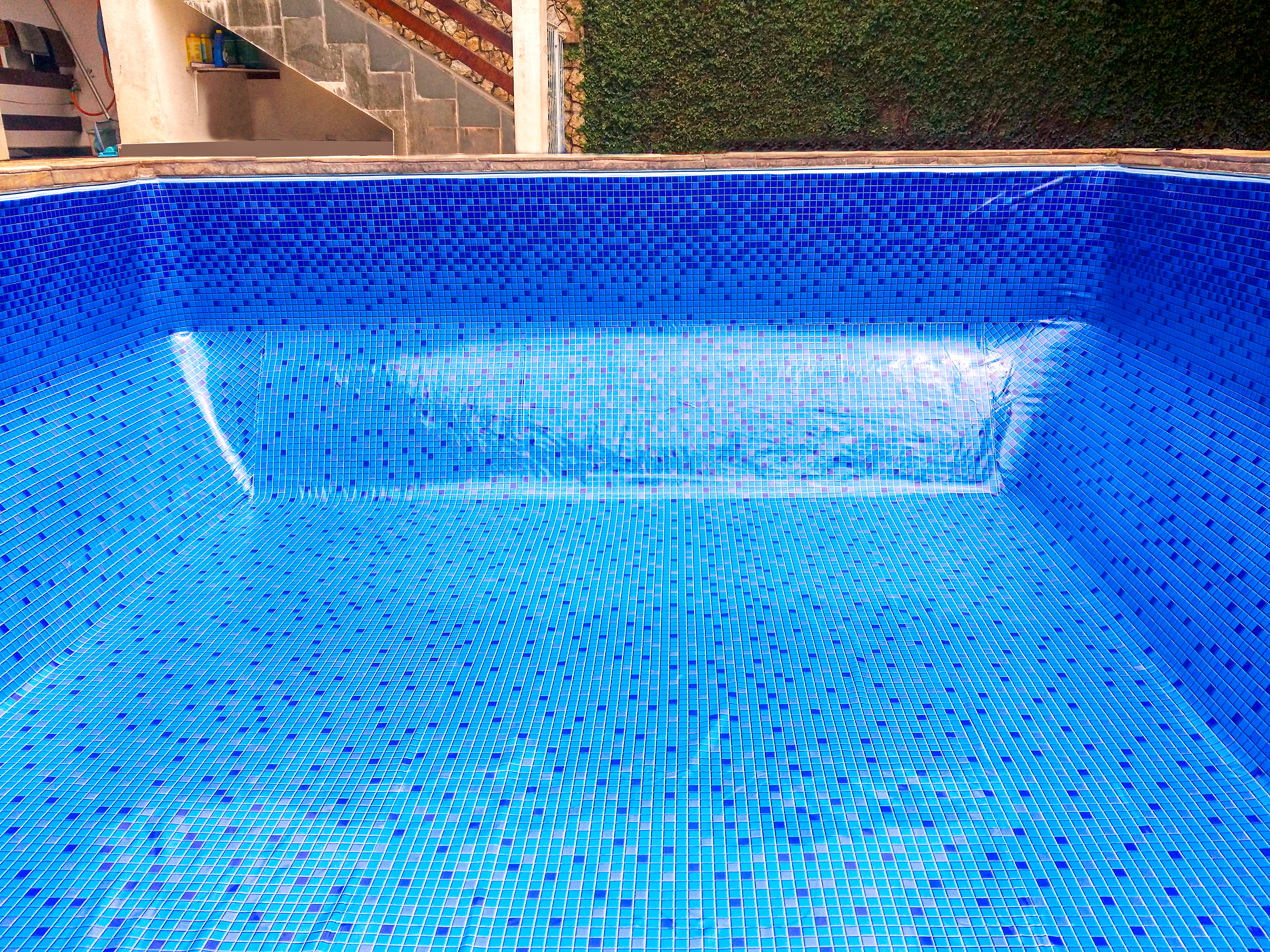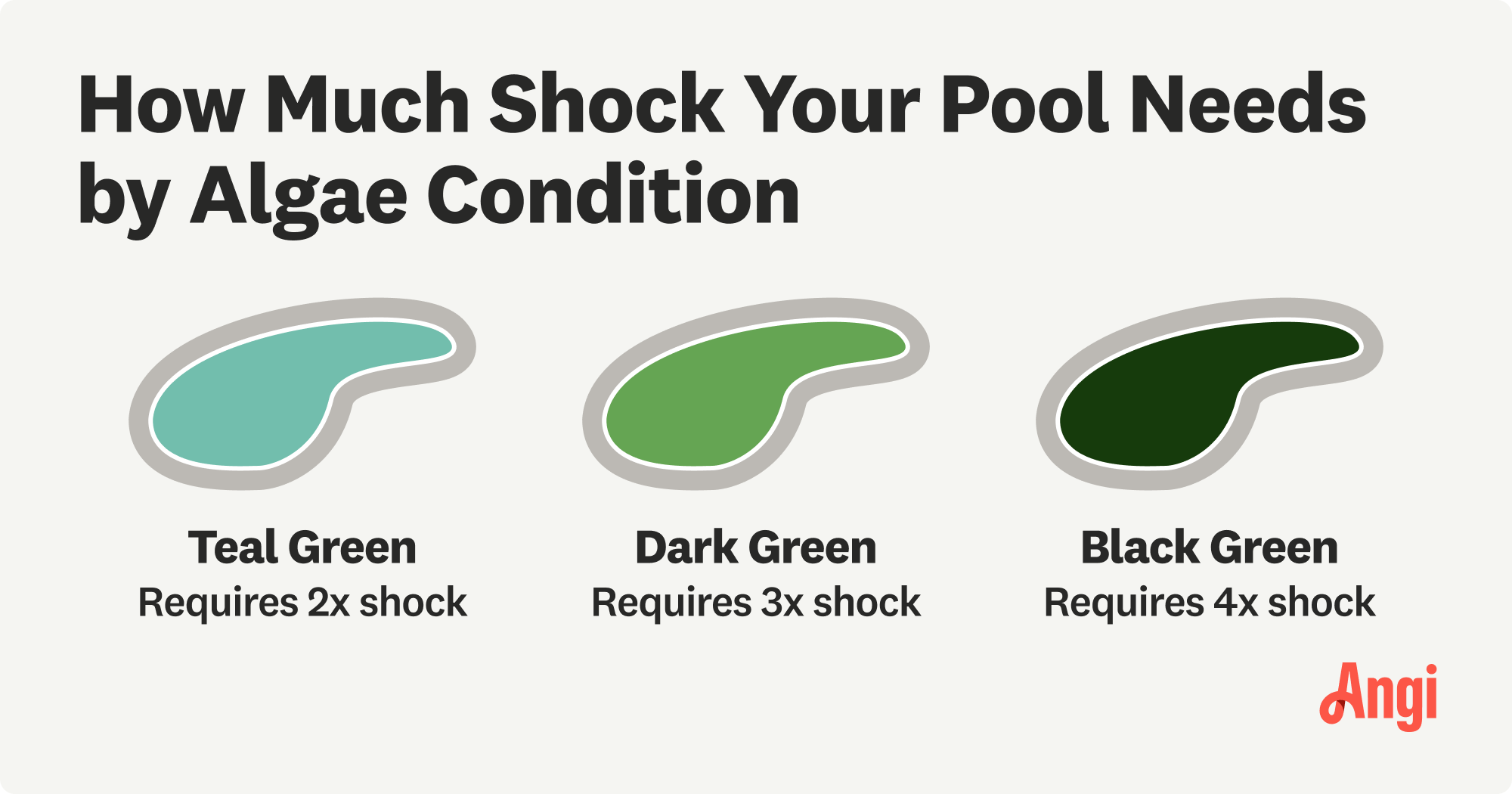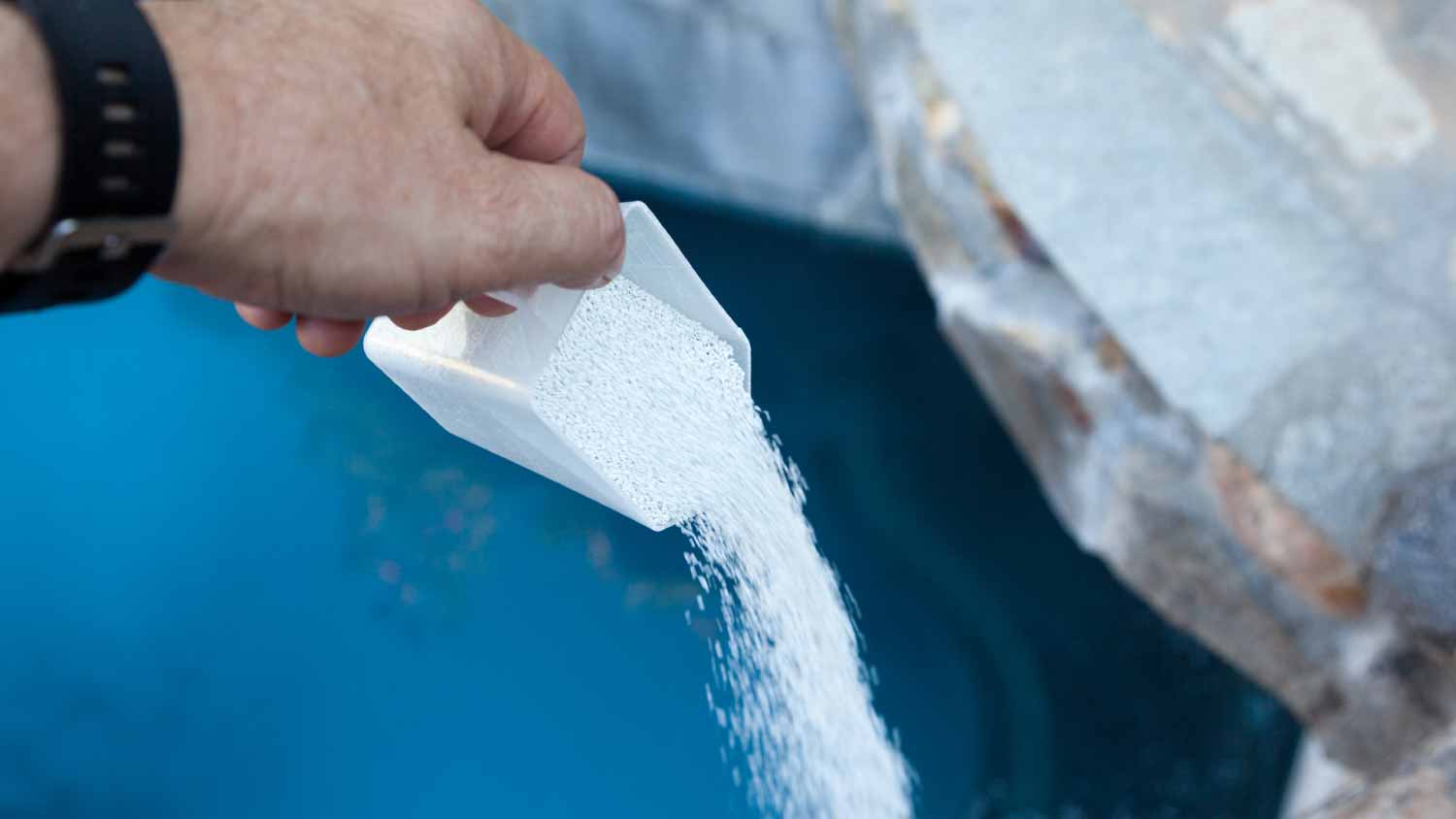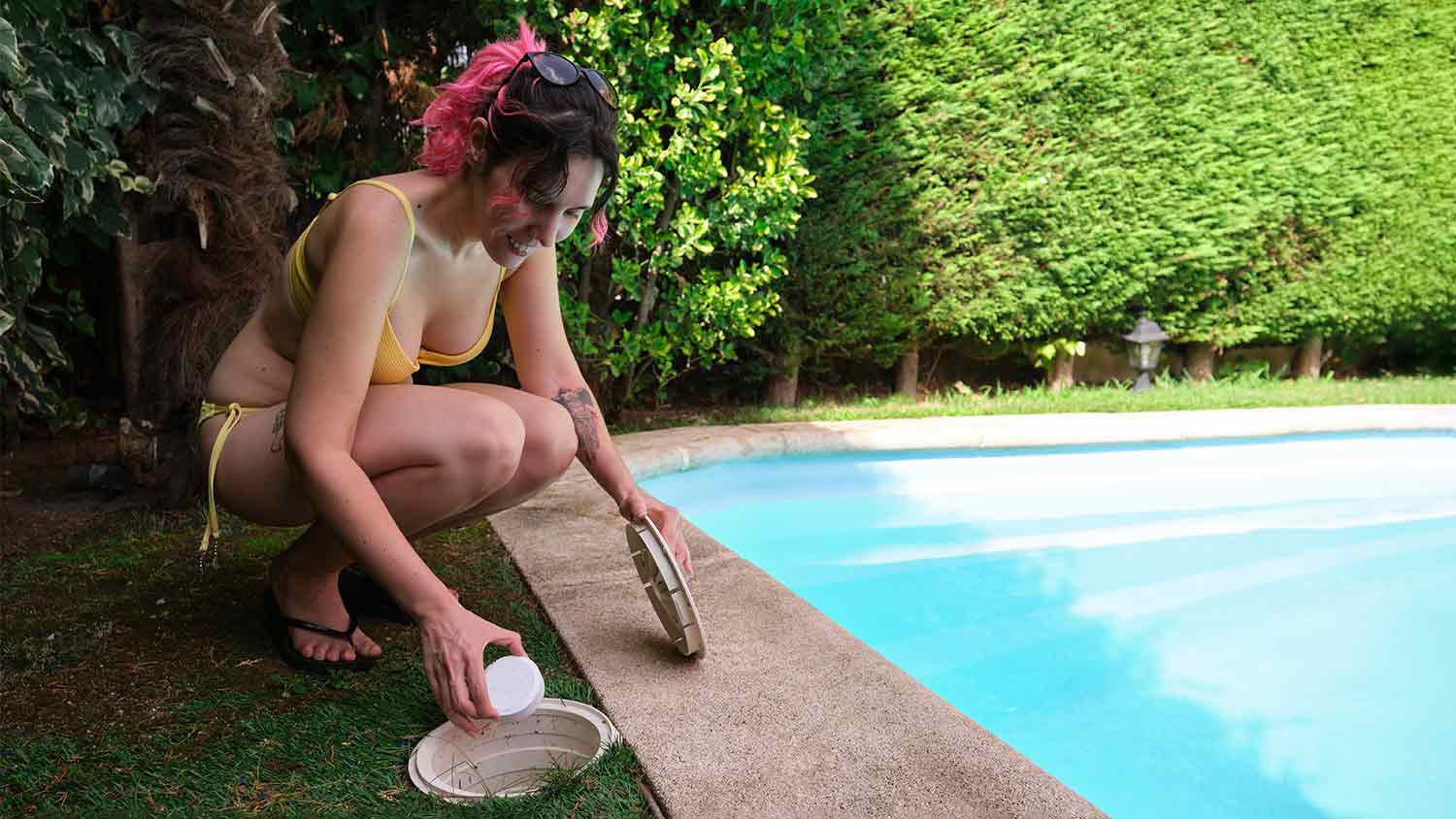
The cost of pool liner replacement in Columbus depends on the size and shape of your pool, as well as the liner material and type. Here’s how the costs break down.


The amount of shock you need for your pool depends on its volume and water condition.
You typically need one pound of shock per 10,000 gallons of water.
Add more if your pool is combating algae growth.
The average cost of pool shock is $5 to $15 per pound.
Shocking a pool eliminates chloramines, algae, bacteria, and other contaminants. It does this by elevating the available free chlorine level to 10 times or more the level of combined chlorine.
How much shock does my pool need? It's an excellent question to ask, as it eliminates guesswork and potentially saves both money and time. The answer depends on the size of your pool, the condition of the water, and the current levels of combined chlorine.
Guidelines suggest your pool needs one pound of pool shock for every 10,000 gallons. However, there are several factors to consider when determining precisely how much your pool needs at any given time.
There are several types of pool shock available, each with its own recommended amounts, depending on your goal. The exact amounts will be listed on the product packaging.
| Pool Size (gallons) | Pool shock for regular maintenance (lbs.) | Pool shock for light algae growth (lbs.) | Pool shock for heavy algae growth (lbs.) |
|---|---|---|---|
| 5,000 | 0.5 | 1 | 0.75–2 |
| 10,000 | 1 | 2 | 3–4 |
| 15,000 | 1.5 | 3 | 4.5–6 |
| 20,000 | 2 | 4 | 6–8 |

The first step to calculating how much shock your pool needs is determining the current water condition. Use test strips or a liquid testing kit (you can purchase either one from your local pool supply store or home improvement store) on your pool water and subtract the free chlorine amount from the total chlorine amount. Use the result, which is the combined chlorine level, to check the recommendations on the specific pool shock product you're using.
Next, convert that number by calculating it against the volume of water in your pool. That result is how much shock your pool needs.
Pounds of Shock = Pool Volume Gallons / 10,000

Measure the volume of a constant-depth rectangular pool by measuring one short side, one long side, and the depth. Multiply these values together. Multiply that value by 7.5 to convert cubic feet to gallons.
For pools with a shallow end, a deep end, and a continuously sloping bottom, multiply the length and width by the average depth and then by 7.5.
To measure the volume of a circular pool, measure the diameter, from one side to the other. Divide the diameter by two to get the radius. Square the radius and multiply it by 3.14. Multiply the result by the depth and by 7.5 for the total volume.
To determine the volume of irregular pools, determine the volume of each section separately. For example, if you have a sloping bottom in one part of the pool and constant depth in another, determine the volume of each space first. Add the volumes together for the total pool volume.
Continuous maintenance is necessary when you own a pool. Shocking your pool regularly is essential to keep the water quality in swimmable condition. While shocking your pool is straightforward, it's just one task of many on a pool maintenance checklist.
For that reason, many homeowners hire a local pool service to manage the week-to-week tasks to make sure their pool stays in optimal condition.
From average costs to expert advice, get all the answers you need to get your job done.

The cost of pool liner replacement in Columbus depends on the size and shape of your pool, as well as the liner material and type. Here’s how the costs break down.

If you’ve been considering installing a new pool in the Buckeye State, this guide will help you understand inground pool costs in Columbus.

Spool pool costs vary based on the design and materials, but they’re relatively affordable and space-saving compared to traditional pools. Here’s a cost breakdown.

Elevate your swimming experience with a DIY pool heater. This guide includes four methods for using the sun's energy to warm your water.

Our chlorine calculator helps you determine the exact amount of chlorine to add to your pool, based on its volume and your desired parts per million (ppm) level.

When a murky mess interrupts your morning laps, you need to know how to clear cloudy pool water fast. These top cloudy water fixes will keep you afloat.